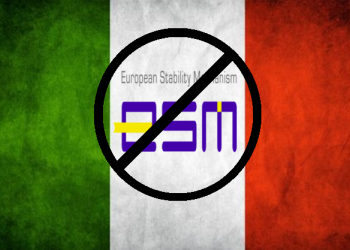Brussels – The European Stability Mechanism is unconvincing. The treaty reform establishing new powers and the State bail-out fund is the subject of concerns that, for now, seem difficult to dispel. The Italian ‘no’ to the ESM therefore remains. Economy Minister Giancarlo Giorgetti explained that the conditions are lacking in today’s Italy to move forward. The expected briefing at the Eurogroup on the vote that in late December buried the entry into force of the new ESM serves to take stock and, above all, to “reason” on how to proceed on possible ways out of a stalemate, as Eurogroup President Paschal Donohoe spells out.
The partners reiterate that it is a time for reflection and that what the Economy Minister has to say helps or can help find solutions. Reopening the debate and files is not one of them. Sources from an EU member state other than Italy make it clear: “It is difficult to imagine that 19 countries that have already ratified the agreement will call it into question and push for a change,” is the position that seems to prevail. Put another way, it is easier to convince one country than nineteen. And it is the intention to work on the side of the majority to overcome the parliamentary hurdle. “A new narrative is needed” in Italy, the sources insist. “A positive narrative” is needed. This means explaining differently to eliminate the ESM scarecrow rooted in the country.
The role of the Italian economy minister in this attempt to unblock the situation is considered crucial. They want to avoid political-institutional conflicts because it would not benefit anyone. What is wanted is an Italian plot to convince partners and find the numbers they need in the House and Senate. “We will continue to work with Giorgetti,” Donohoe insists, a concept expressed several times at the end of the Eurogroup proceedings.
The executive director of the ESM, Pierre Gramegna, on the other hand, reminds us that Italy bears responsibility for what may happen: “Fortunately, this negative vote by Parliament has come at a time when there is no financial crisis, and eurozone banks are not in distress.” An implicit invitation and warning to find a solution.
The same invitation comes from Economy Commissioner Paolo Gentiloni. “Certainly, the decision (on the ESM treaty reform in Italy) is regretful..but Parliament is sovereign,” he stresses. However, nothing is lost, and indeed the stop in Italy should not be a reason to end the work. On the contrary, “I believe that this regret should translate into the push for a solution.”
English version by the Translation Service of Withub






